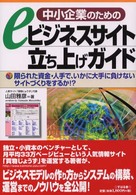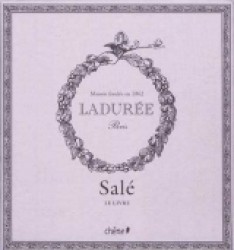- ホーム
- > 洋書
- > 英文書
- > Politics / International Relations
Full Description
This insightful Handbook provides a comprehensive overview of affective polarization, covering various subfields and theoretical frameworks and proposing avenues for further research. It highlights issues of conceptualization, methodology, causes, consequences, and interventions. It offers a comparative approach, examining the phenomenon across societies and political systems and providing evidence from Asia, Europe and the Americas.
The chapters in this Handbook are written by leading experts in the field. The first part of the Handbook discusses how affective polarization can be understood in the light of political theory and how it can be studied through the use of quantitative and qualitative methods. The next set of chapters provides comparative case studies across a range of world regions. Subsequent chapters examine the potential causes of polarization, including its social and ideological roots and the role played by, among others, identities, political competition, communication, and economic factors. The Handbook also reflects on the consequences of affective polarization for society and democracy, ranging from representation and accountability to political violence and democratic backsliding.
The Handbook of Affective Polarization is an essential resource for students and academics in political science, sociology, political psychology, and adjacent fields. Policymakers and practitioners working in public administration and management will also greatly benefit from its forward-thinking insights and strategies for mitigating affective polarization.
Contents
Contents
1 Introduction to the Handbook of Affective Polarization 1
Mariano Torcal and Eelco Harteveld
PART I THEORETICAL AND CONCEPTUAL DEBATES
2 Conceptualizing affective polarization 21
Shanto Iyengar and Markus Wagner
3 Affective polarization and political theory 34
Manon Westphal
PART II OPERATIONALIZATION
4 Measuring affective polarization 51
Ryan E. Carlin and Gregory J. Love
5 Operationalizing affective polarization in multiparty systems 67
Mariano Torcal and Josep Maria Comellas
6 Affective polarization and qualitative methods 85
Lena Röllicke
PART III AFFECTIVE POLARIZATION AROUND THE WORLD
7 Affective polarization in the USA 101
Marc J. Hetherington and Thomas J. Rudolph
8 Affective polarization in Europe 115
Andres Reiljan
9 Affective polarization in Latin America 133
Juan A. Moraes and Sergio Béjar
10 Affective polarization in East Asia 148
Yi-ching Hsiao and Eric Chen-hua Yu
PART IV ANTECEDENTS OF AFFECTIVE POLARIZATION
Section 4.1
Identities
11 Partisanship and affective polarization 162
Alexa Bankert and Andrew L. Stone
12 Negative partisanship and affective polarization 178
Luana Russo and João Areal
13 Threats, emotions and affective polarization 192
Emma A. Renström and Hanna Bäck
Section 4.2
Ideological roots
14 Ideology and affective polarization 206
Emma Turkenburg and Patrick van Erkel
15 Affective polarization around issues 220
Sara B. Hobolt and James Tilley
Section 4.3
Social roots
16 Social sorting and affective polarization 232
Lilliana Mason and Peter Luca Versteegen
17 Political stereotypes and affective polarization 250
Eelco Harteveld
Section 4.4
Political competition
18 Party competition and affective polarization 262
Eva Anduiza, Daniel Balinhas and Enrique Hernández
19 Populism and affective polarization 276
Nayantara Ranganatha, Dániel Komáromy and Matthijs Rooduijn
Section 4.5
Communication
20 Interpersonal communication and affective polarization 291
Eran Amsalem
21 Negative campaigning and affective polarization 301
Alessandro Nai and Elizabeth L. Young
22 Social media and affective polarization 319
Guy Reisman and Shira Dvir-Gvirsman
Section 4.6
Economy
23 The economy and affective polarization 337
Will Horne, James Adams and Noam Gidron
PART V CONSEQUENCES OF AFFECTIVE POLARIZATION
24 Affective polarization, representation, and accountability 352
David Sulmont and José Incio
25 Affective polarization and social cohesion 363
Mariano Torcal, Dietlind Stolle and Zoe A. Thomson
26 Affective polarization, democratic norms, and support for elite
transgression 379
Andrej Kokkonen and Eelco Harteveld
27 Affective polarization and democratic backsliding 393
Murat Somer and Jennifer McCoy
28 Affective polarization and political violence 405
Lars Erik Berntzen
PART VI
SOLUTIONS
29 Interventions targeting affective polarization: intergroup contact 419
Dominik A. Stecuła
30 Interventions targeting affective polarization: media, journalism, and
technology 435
Jay D. Hmielowski, Myiah J. Hutchens and Michael A. Beam








